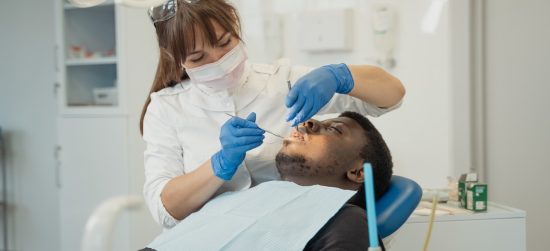Choosing the right addiction treatment center for your loved ones can be daunting. The decision you make not only affects the well-being of your loved one but also significantly influences their chances of full recovery. This guide provides key aspects to consider when choosing a rehab facility, helping you make a wise and informed decision.
Different Types of Rehab Programs
The initial step in the path to recovery is identifying the type of rehab program best suited for your loved one.
Outpatient Programs
Outpatient programs provide flexibility over inpatient programs as patients can maintain their usual schedule while attending regularly scheduled treatments. Patients receive structured, comprehensive therapy sessions for cases such as the intensive outpatient program in Atlanta without needing overnight stays.
Inpatient Programs
Inpatient programs are ideal for people dealing with severe addiction issues. These programs offer a structured and intensive treatment plan in a secure residential environment. Patients receive round-the-clock medical care and have access to various therapies.
These include individual counseling, group therapy, and sometimes alternative therapies like art or yoga. Inpatient programs generally lead to better success rates due to the high level of support and lack of access to substances.
Specialized Rehab Programs
Specialized rehab programs are beneficial as they focus on specific groups or addiction types. Some of these programs include:
- Gender-Specific Programs: These cater exclusively to men or women, addressing gender-specific addiction-related issues.
- Teen Programs: Targeted at adolescents, these programs address unique challenges teens battling substance abuse face.
- Dual Diagnosis Programs: These are designed for individuals dealing with substance abuse and mental health disorders.
- Holistic Programs: These programs integrate traditional treatment methods with holistic approaches, including yoga, meditation, and acupuncture.
- Veteran Programs: These programs cater to veterans who may suffer from addictions due to trauma or stress related to their service.
Essential Factors to Consider While Choosing a Rehab Facility
When choosing a rehab facility, you must consider several crucial factors:
- Addiction Treatment Approach: Different centers may have diverse approaches to addiction treatment. It’s crucial to select a facility like Peachtree Recovery Solutions, which focuses on a combination of personalized treatment plans, including medical detox, counseling, and support groups.
- Accreditations and Licensing: Confirm the rehab center has the necessary accreditations and licensing, proving they adhere to well-established treatment standards and procedures.
- Treatment Length: Understand that treatment length varies and is often customized based on the individual’s responsiveness to therapy and addiction severity.
- Success Rate of Treatment: Research the center’s success rates to gauge the effectiveness of their treatment. Centers that maintain transparency about their success rates are often more reliable.
- Insurance Compatibility: Before confirming a center, make sure they accept your insurance plan.
- Post-Treatment Support: Choose centers providing robust post-treatment support such as continuing therapy, support groups, and follow-up visits. High-quality aftercare significantly helps in preventing relapse.
- Quality of Staff: The treatment center should employ a team of highly qualified and experienced healthcare professionals. They should demonstrate compassionate care, patience, and understanding.
- Personalized Treatment Plans: The rehab center should tailor the treatment plan to match the individual’s unique needs, considering their mental, physical, and emotional wellness.
Quality Markers of the Best Rehab Center
Certain qualities can help you identify the best addiction treatment center for your loved ones.
Multidisciplinary Treatment Team
A multidisciplinary treatment team is the foundation of any good rehab center. It may consist of medical doctors, addiction counselors, psychologists, and psychiatrists working together to provide complete, well-rounded care.
Evidence-Based Practices in Addiction Treatment
Evidence-based practices in addiction treatment have been scientifically researched and have demonstrated effectiveness in aiding recovery. These can include cognitive-behavioral therapy, medication-assisted treatment, and motivational enhancement therapy. Implementing these practices can significantly improve the quality of addiction treatment and recovery outcomes.
Post-Treatment Support
Post-treatment support is essential in maintaining long-term sobriety post-rehabilitation. It aids in relapse prevention by providing ongoing counseling, facilitating access to support groups, and offering resources for stress management. The best rehab centers ensure strong post-treatment support, fostering continuous recovery and personal growth.
Role of Medical Assistance in Addiction Treatment
Medical assistance is significant in addiction treatment, including medication-assisted therapies and detox.
- Medical Detox: Medical detox is often the first step of addiction treatment, helping the body rid itself of the substance while managing the withdrawal symptoms.
- Medication-assisted Therapies: Medication-assisted therapies help manage withdrawal symptoms and curb cravings, generally combined with counseling and behavioral therapies.
- Dual Diagnosis Treatment: Most dual diagnosis treatment centers in Georgia focus on treating addiction and any co-occurring mental health disorders simultaneously for a holistic recovery approach.
Insurance for Rehab
Rehab insurance can substantially offset the cost of addiction treatment, making it more affordable. Confirming whether the potential rehab facility accepts your insurance plan is crucial. Some insurance plans cover inpatient treatment, outpatient care, and medication-assisted therapies.
Importance of Family in Addiction Treatment
Family involvement in addiction treatment yields significantly positive results as they form a crucial support system. Engaged family members can help monitor progress, offer emotional support, and encourage adherence to treatment protocols.
Conclusion
Choosing the right addiction treatment center involves careful consideration of several factors. These elements significantly impact recovery outcomes from the types of programs offered to the care team’s expertise and post-treatment support. You can help set your loved one on a successful path to recovery and a healthier, substance-free life through informed decisions.






